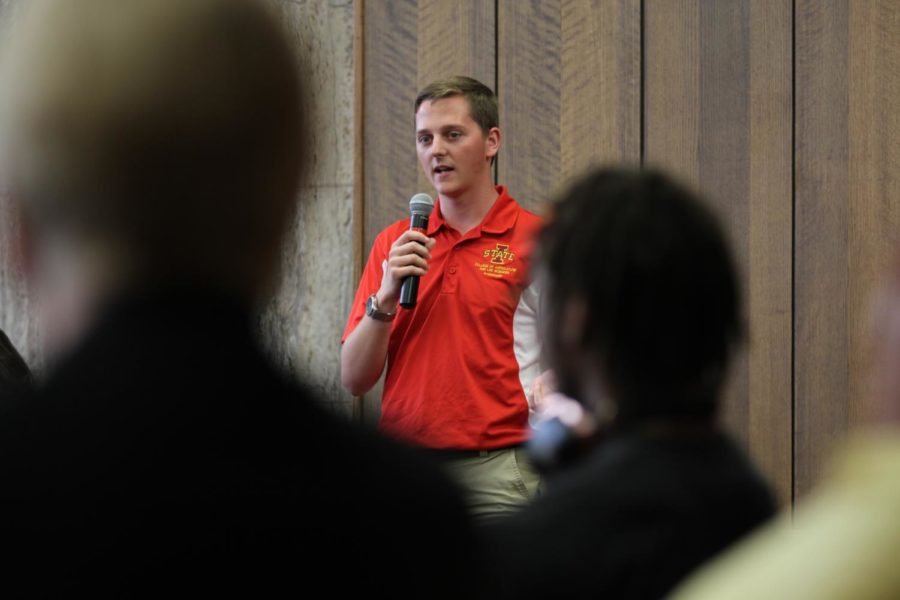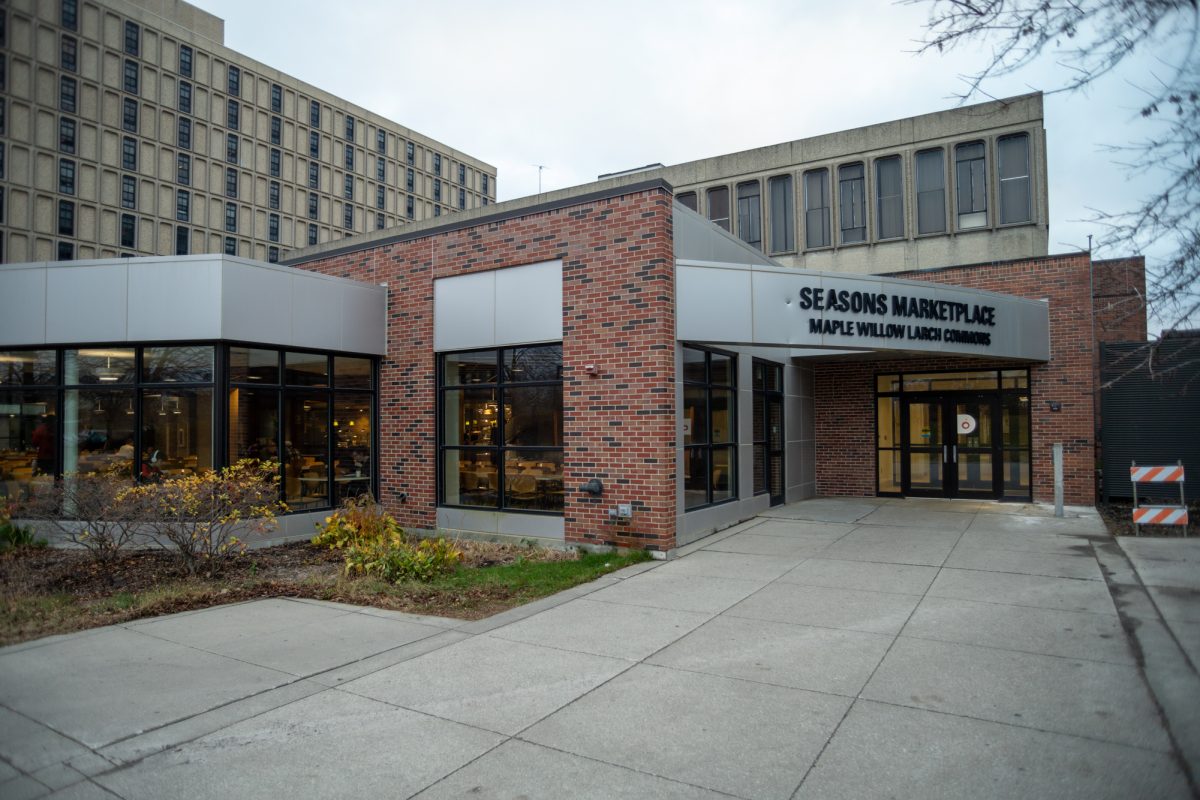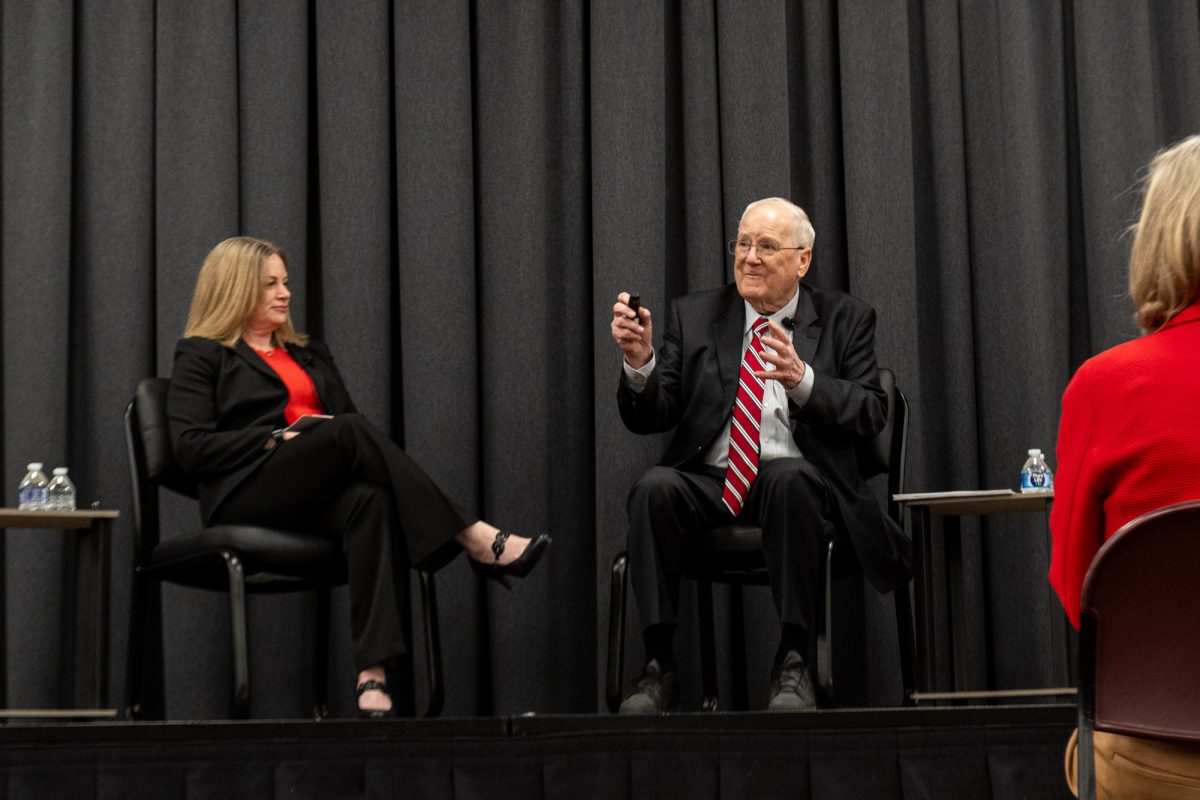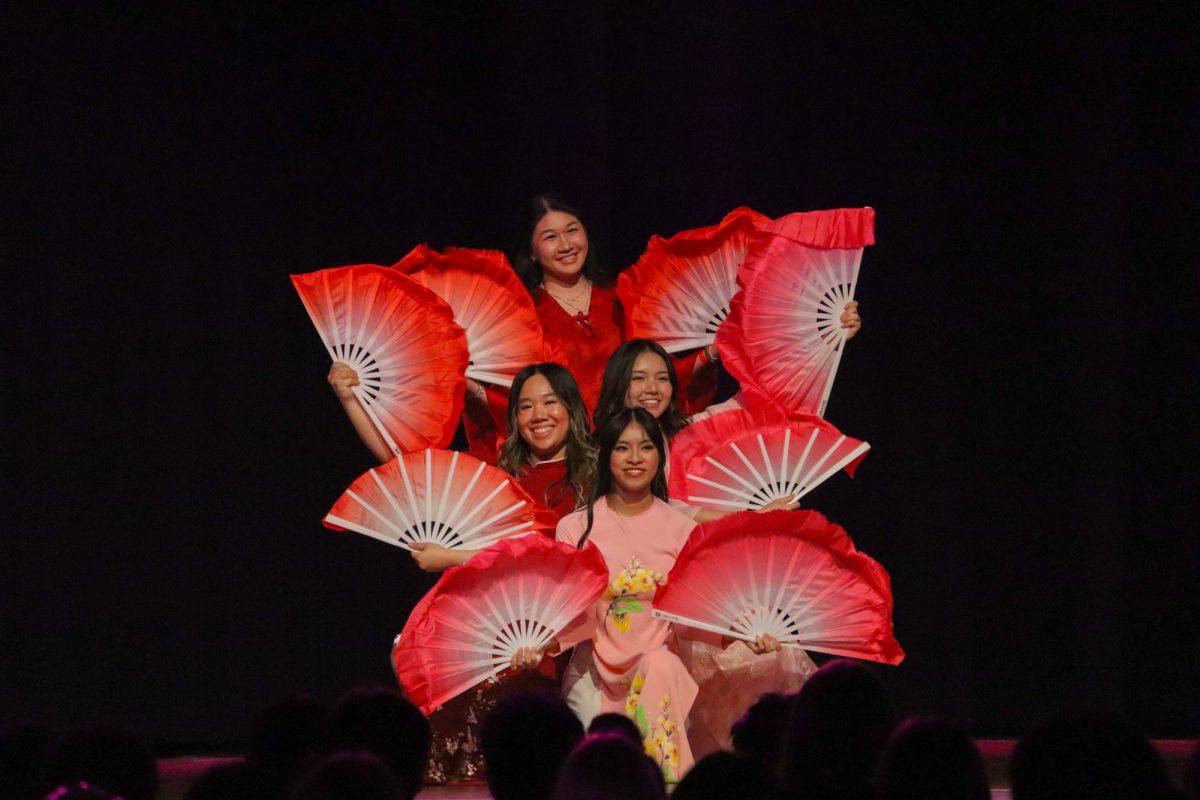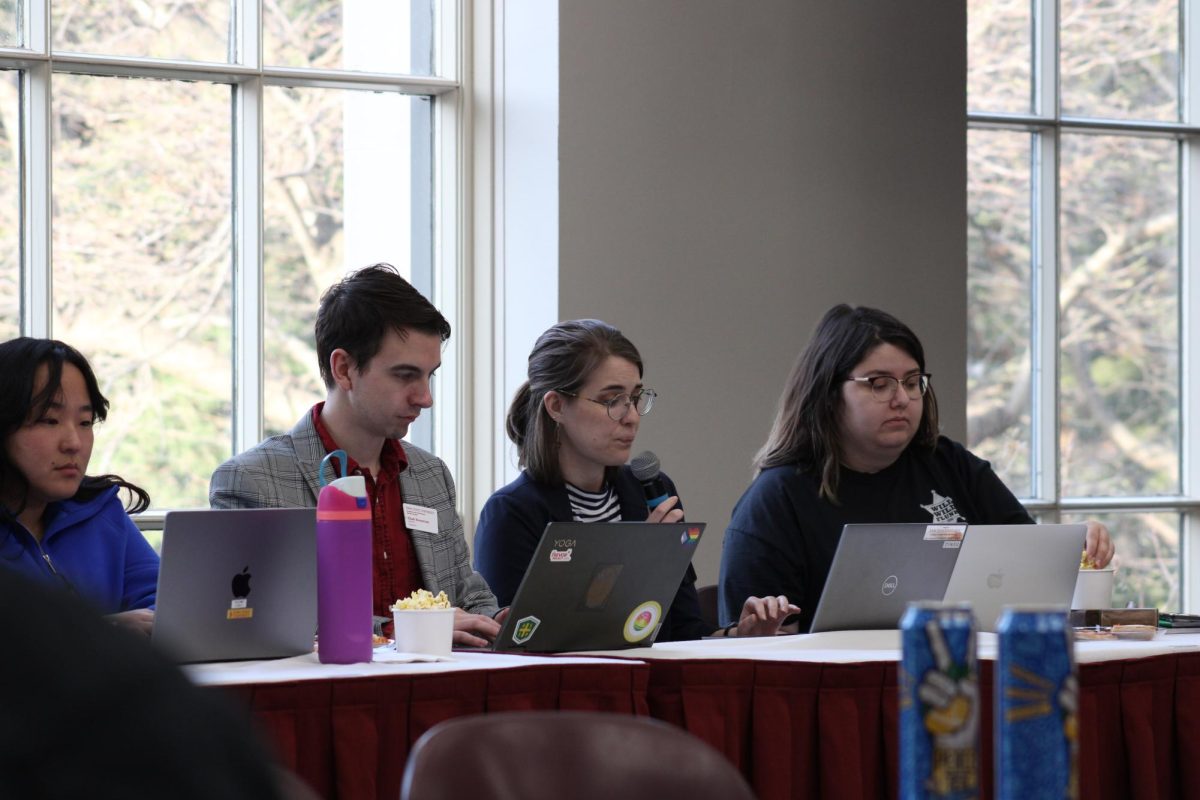A second perspective: VP of StuGov among those at second forum
Hannah Olson / Iowa State Daily
Student Body Vice President Cody Smith speaks on behalf of students during the open forum in the Campanile Room on June 12.
June 12, 2017
The second forum for community input on the search for Iowa State University’s 16th president took place Monday night. Among the audience were two Board of Regents members, several committee members and a few community members.
The forum was led by members of AGB Search, the firm assisting the committee in finding Iowa State University’s next president. They called it the “pre-search” period, when they try to learn as much about the institution as possible. They’d already met specifically with different groups on campus, from deans to administration, and now were opening it up to the public to come to them.
So what came up among those present?
Private, public, all of the above
The state and federal budget were the top of College of Agriculture and Life Sciences Senior Associate Dean Joe Colletti’s list, specifically cuts in research and education funding on a state and federal level, along with the current budget model at the university.
“We’re long past the time where it’s only going to be state funds or federal funds that are going to operate this great university,” Colletti said.
The importance of working with both the public and private sector came up at both forums during the day.
“We have to have somebody who really has experience, not just knows about it, but has some expertise working with [lawmakers],” Colletti said. “There has to be a strong relationship and understanding of the alums and the value that not only alumni but friends can bring.”
Dan Culhane, president of the Ames Chamber of Commerce, said that the ties Iowa State has to the Ames and Central Iowa community economies is important.
“There is a responsibility as a land-grant institution to work on behalf of the greater good of the state of Iowa. I think we’ve had a good history of doing that, and I’d like to see that continue,” Culhane said.
“This idea that this person is going to continue that tradition, actually consider the future of the land grant… and how this triple mission of the land grant mission comes together,” College of Design Dean Luis Rico-Gutierrez, co-chair of the search committee, summarized.
Bharat Agrawal, a doctoral candidate in aerospace engineering, said he saw a disconnect between K-12 education and incoming students in being prepared for the advanced courses, and hoped the new president would prioritize outreach in preparing future students. Agrawal was a previous member of the Graduate and Professional Student Senate.
The downsides of growth
The question of the optimal size of the university also came up, with concern for upkeep, equipment, infrastructure and renovation after rapid enrollment growth.
“I don’t think the university and the community was ready for that,” Vivek Lawana, president of the Graduate and Professional Student Senate, said. One example Lawana gave was housing. Another was the wifi system.
“It really is about having enough resources. Space is the number one resource we’re lacking,” Colletti said. “To use an [agriculture] term, the bin is busted.”
Colletti said another concern was people resources, particularly in teaching faculty, and infrastructure and equipment quality and upkeep.
“At the whole university level there’s a backlog on major renovation and upgrade and some very, very old buildings,” Colletti said.
Vice President of Student Government Cody Smith echoed Colletti’s concerns, using the building the forums were held in.
“We have 26 million dollars in deferred maintenance here [in the Memorial Union],” Smith said. “That’s a significant amount of money, and the students voted not to raise their student fee to do it, so we’re either going to have to find that money somewhere else or lobby the state to provide that to us. And the consequences of not getting that funding means that we’ll lose one of the most integral buildings on our campus.”
Smith said it came down to a candidate willing to go against the current status quo, and to form a coalition of multiple voices to support advancement on campus and in the legislature.
“I think over the past five years especially, we’ve seen the mentality ‘well if the state’s not going to fund us more, so let’s raise tuition,'” Smith said. “I understand that that’s necessary to keep the university going, but I also think that we need somebody … who has the ability to question [that].”
Choosing your adventure at ISU
“Universities are becoming more and more similar. Everyone’s striving for the same students, the same experience. We’re trying to get the same type of residence halls and cafeterias and rec services, and I think at some point we have to be OK with being different, and that different may not show up in a ranking,” Michael DuPont, a doctoral candidate in higher education, said.
“I think we’re still a university that’s willing to ask, how can we change this, how can we better ourselves, what can we do differently,” DuPont said. “I don’t know if every university is as willing as Iowa State to question how we do things.”
“Yes, we are good, but we can get better,” Colletti said. “I think that’s one of the things that’s quite clear about this university, we don’t just rest on our laurels and say ‘that’s good enough.'”
Colletti said Iowa State, being student centered, is a university that really values teaching, along with collaboration in research and sharing the learning from the research, whether that be a group or a farmer.
The husband of Regent Nancy Boettger, who is a retired farmer, emphasized the importance and opportunity Iowa has as a state to lead in agriculture. Iowa State University, which began as the agricultural college, is expected to lead in the agriculture business and in feeding the world’s growing population.
“The center of the universe of agriculture is here,” Culhane said. “As you look at the challenges around the globe, they’re going to continue. We’re going to have more people, we’re going to need to feed more people… it’s around the world where this institution is renowned… someone gets to lead this great engine in all these different directions that are so meaningful and so impactful long after their tenure is over.”
The culture at Iowa State also came up at both forums Monday.
“Two years ago, our president says he doesn’t see race,” DuPont said. “I think we need a president who recognizes the socio-historical and cultural elements of how education’s evolved over time, who’s been included and not included… and [that takes somebody] who is willing to stand up and not always send it to committee, and student groups, and say ‘we’ll work on this behind closed doors.'”
Smith said that he expected two main concerns to come up frequently in Tuesday night’s student-only forum.
“The biggest lack from this current administration that we’ve had, outgoing now, is a lack of transparency and really just getting information out to people who need it,” Smith said. “A lot of public relations issues that we had as a university this year could have been avoided by being proactive.”
Smith also said students wanted a president willing to become familiar with them.
“I think that students want a face that they’ll recognize,” Smith said. “Students want a person to emulate what Iowa State is and how welcoming we are to people of all backgrounds.”


